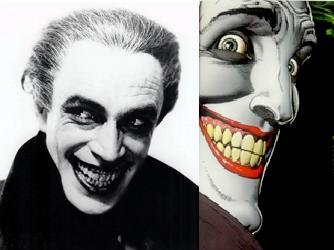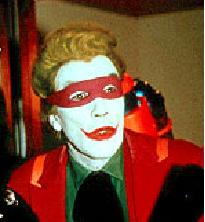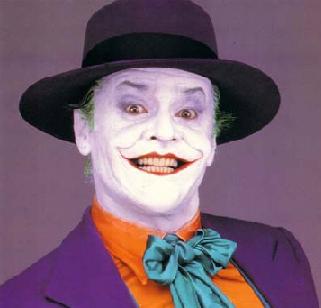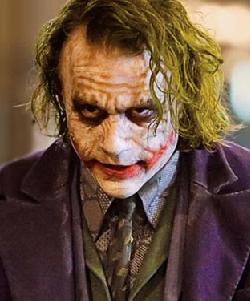Who Was the Best Joker?
By Zach Bowen
March 2, 2009 - 20:37
Ever since “The Dark Knight” came out there has been a debate about who was the best Joker. The question seems to be phrased “Nicholson or Ledger?” With Heath Ledger recently winning the Oscar for Best Supporting Actor, the debate has come up yet again. This hardly seems fair, considering there have been more actors to play the Joker than just these two. With this in mind, I am going to take a look back at all four of the actors who portrayed a live-action Joker in a theatrical film.
I must have already raised a few eyebrows by saying I am looking at four different Jokers - when people think of live action Jokers, they think of Romero, Nicholson, and Ledger. While the fourth actor did not technically portray the Joker, he did play the role that inspired the creation of the character. Conrad Veidt played a character named Gwynplaine, a man who had been deformed and wore a permanent grin on his face. “The Man Who Laughs” was released in 1928 by Universal Pictures. With the advent of sound, “The Man Who Laughs” was originally supposed to be the first talkie horror film.
 |
The grinning image of Gwynplaine’s smile has defined every Joker to come. Even in silence it is far more terrifying than the most maniacal laugh. It is interesting to look at the Joker in the acclaimed graphic novel “The Killing Joke” by Alan Moore. Moore’s villain bears the closest resemblance to Gwynplaine. There was also a Batman story by Ed Brubaker, “Batman: The Man Who Laughs” released in 2005, which drew obvious inspiration from the film. While this film has become obscure, it is definitely worth watching for any fan of the Batman movies or comics.
The first real Joker to reach the silver screen was played by Cesar Romero in “Batman the Movie” released in 1966. Most fans quickly dismiss Romero’s performance for being so ridiculously over the top and campy. Romero seems to be remembered more for not shaving off his mustache underneath the Joker makeup than for his acting ability.
 |
In 1989, “Batman” was released. The Tim Burton directed film was dark, Gothic, and stylized. It is interesting to note that Jack Nicholson, who plays the Joker, received top billing over Michael Keaton, who played Batman. Nicholson was a bigger star than Keaton, but being credited first, over the title character, really lets the audience know which actor stole the show. Nicholson’s character is unique, starting out at first as the criminal Jack Napier before transforming into the Joker instead. This allows the audience to see the dark progression of the character as he becomes more twisted and insane.
 |
This brings us up to 2008. Heath Ledger played the Joker in the second highest grossing film of all time while additionally earning an Oscar for his performance. This is substantial evidence to prove that Ledger may well be the best Joker of all time.
 |
Any comments or questions can be sent to zach@comicbookbin.com
Related Articles:
Joker Review
Review: Harley Loves Joker #2
Review: Harley Loves Joker #1
DC reveals a new Joker design meant to be kept under wraps
“The kind of mind The Joker attracts” or Evil Enabled?
John DiMaggio provides the sinister voice of The Joker in "Batman: Under the Red Hood"
Who Was the Best Joker?
The Joker Fan Made Music Video
Joker
Ray Wall Band Brings You, "The Joker"
